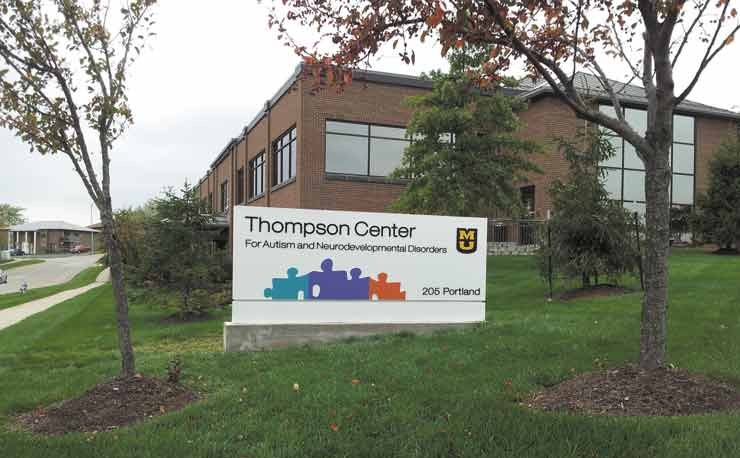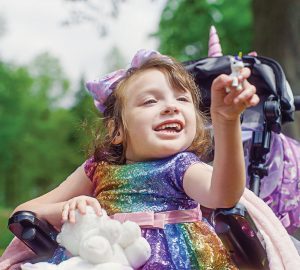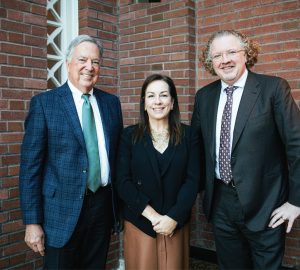Yesterday, 8-year-old Morgan proudly wore her Rainbow Loom bracelet to school. The week before, she and a couple of classmates played together with their American Girl dolls. “What’s the big deal,” you might be thinking. “Don’t all little girls do that?”
Not if they have autism spectrum disorder (ASD), a neurodevelpmental condition that affects about one in 88 American children … and their families. “Morgan has always been prone to fierce temper meltdowns and aggressive acting-out,” recalls her mother, Amy Riley. “For years, she didn’t want to socialize with other kids and didn’t know how to interact with them.”
A couple of years ago, the Rileys took her to Thompson Center for Autism and Neurodevelopmental Disorders at University of Missouri, where she was diagnosed with Asperger’s syndrome, a form of autism. “It’s such a relief to finally understand what’s going on with our daughter,” Riley says. “The amazing team at Thompson Center gives us the help we need.”
Thompson Center focuses on improving the lives of families affected by ASD and related disabilities. Launched in 2005 by Bill and Nancy Thompson, it’s a national leader in ASD care, research, professional training, community outreach and public policy. “We provide comprehensive services for more than 1,000 individuals and families annually, helping each child achieve their maximum potential,” says executive director Stephen Kanne, Ph.D.
Among its many innovative research projects, Thompson Center is now testing the Autism Impact Measure (AIM), a tool that assesses the effectiveness of autism treatment. The study, made possible by a $3.8 million grant from the National Institutes of Health, will follow 480 children and their families for up to six months. “The symptoms of autism are so varied, and can differ so much from child to child, it can be hard to demonstrate that children are responding to behavioral and drug therapies,” says child psychologist Micha Mazurek, Ph.D., who developed the test with Kanne. AIM, a parent-input questionnaire, tracks the frequency of symptoms and measures incremental changes. “A valid, reliable, vtreatment-outcome measure can help us zero in on kids’ symptoms and find out which therapies work for them,” she notes.
Early diagnosis and the right kind of intervention at every stage help individuals with ASD achieve fuller, more productive lives, Kanne notes. “The benefits of intervention are great, but the cost is high. We rely on Thompson Foundation, our fundraising arm, to support projects, programs and financial aid that make a real difference to the families we serve.” It’s in the Cards, the foundation’s annual auction event featuring St. Louis Cardinals players and coaches, is a major fundraiser. This year’s auction takes place May 15, with Mike Matheny as honorary chair.
“Our ultimate goal is to improve care and quality of life for kids with autism,” says Jack Reis, a top Foundation fundraiser and frequent auction co-chair. “All parents want their children to be healthy and happy. Thompson Center works with families to give kids with ASD that chance.”
Photo by Thompson Center
Pictured: Thompson Center for Autism and Neurodevelopmental Disorders at University of Mizzouri
[It’s in the Cards, the annual auction benefiting Thompson Foundation for Autism and Neurodevelopmental Disorders, takes place May 15. A location has not yet been chosen, but stay tuned to T&S and thompsonfoundation.org for further details. For more information, email stl@thompsonfoundation.org.]








